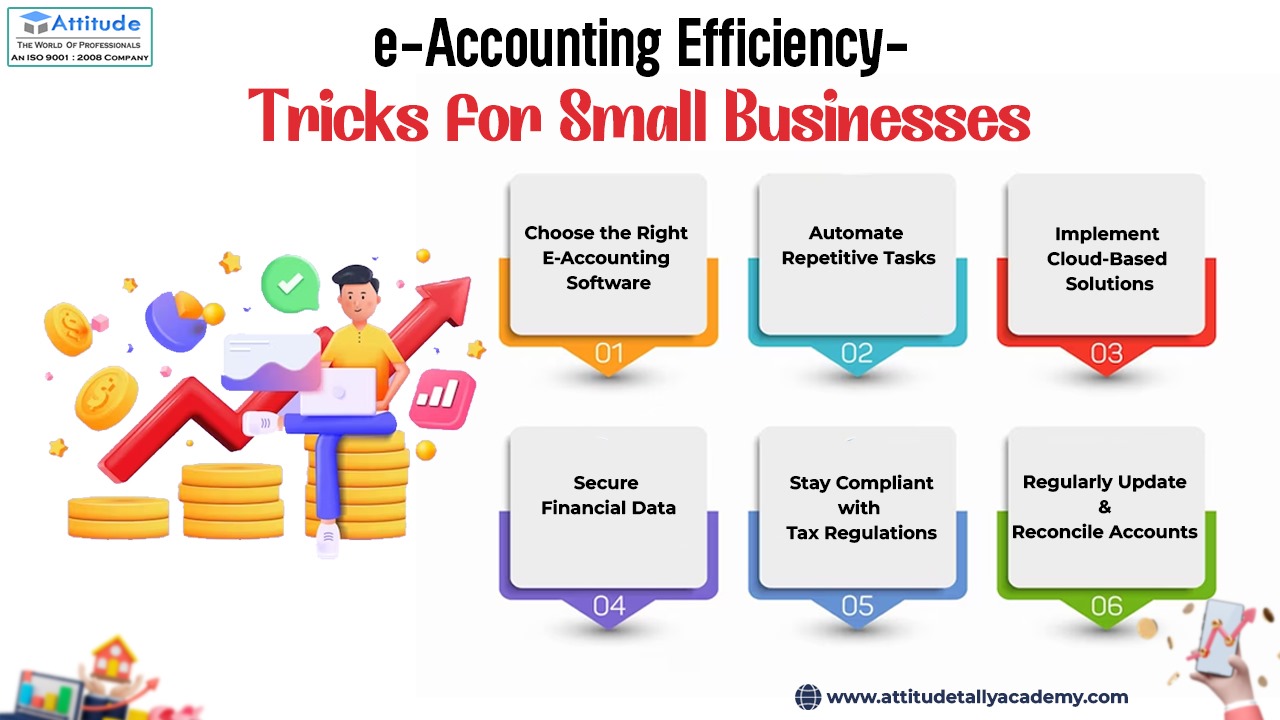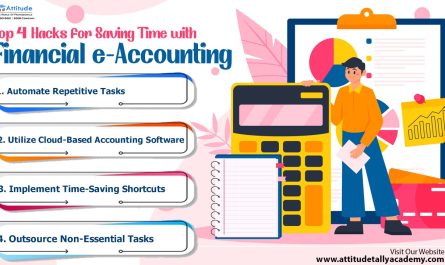Introduction:
In the fast-paced digital era, small businesses are increasingly turning to electronic accounting (e-accounting) to streamline their financial processes. E-accounting not only helps save time and reduce errors but also enhances overall efficiency, allowing small businesses to focus on growth and sustainability. In this blog post, we’ll explore some valuable tricks to maximize e-accounting efficiency for small businesses.
Choose the Right E-Accounting Software: The first step in optimizing e-accounting efficiency is selecting the right software. Consider factors such as user-friendliness, scalability, integration capabilities, and cost. Popular choices like QuickBooks, Xero, and FreshBooks offer a range of features tailored to small business needs.
Automate Repetitive Tasks: E-accounting allows for the automation of repetitive tasks such as invoicing, expense tracking, and payroll. Automation not only reduces the likelihood of errors but also frees up valuable time for business owners to focus on strategic decision-making.
Implement Cloud-Based Solutions: Cloud-based e-accounting solutions provide accessibility from anywhere with an internet connection. This flexibility is particularly beneficial for small business owners who need to manage finances on the go. Additionally, cloud-based systems ensure that data is securely backed up, mitigating the risk of data loss.
Secure Financial Data: Security is paramount when it comes to financial data. Ensure that your e-accounting software employs robust security measures, including encryption and multi-factor authentication. Regularly update passwords and restrict access to sensitive financial information to authorized personnel only.
Stay Compliant with Tax Regulations: E-accounting software often comes equipped with features that help businesses stay compliant with tax regulations. Take advantage of these features to automate tax calculations, track deductions, and generate accurate financial reports. Staying compliant not only avoids penalties but also contributes to a smooth auditing process.
Regularly Update and Reconcile Accounts: Stay on top of financial transactions by regularly updating and reconciling accounts. This practice helps identify discrepancies, ensures accurate financial reporting, and provides a clear picture of the business’s financial health. Set aside dedicated time for these tasks to maintain consistency.
Conclusion:
Incorporating e-accounting into small business operations is a strategic move towards efficiency, accuracy, and overall growth. By choosing the right software, embracing automation, and following best practices for e-accounting solutions, small businesses can navigate their financial landscape with ease. E-accounting is not just a tool; it’s a key driver for success in the modern business landscape.
Suggested Link:
TallyPrime With GST Complete Income Tax with e-Filing Complete GST Course with e-Filing
Basic to Advance Inventory Management




